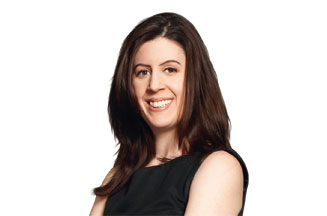Six months on, we had heard very little. Suspense around their intentions was greater than an X Factor final.
The pair finally went public last week in GQ, revealing plans to take The X Factor talent-show format global with an internet TV venture staged in Las Vegas. The idea is to air two shows a week, which 40m fans could watch online on a pay-per-view basis.
Is this Green and Cowell turning their backs on advertisers in favour of the subscription model, adopting a strategy that seems to be gaining currency in the media?
Actually, the word is that the pair believe they can have the best of both worlds. Mass paying audiences will attract lucrative sponsorship and product placement deals. After all, the rules on placement look likely to be relaxed in the UK and the US is already an active product placement market.
However, the subscription model is a gamble, as attracting mass audiences in the first instance will not be easy. The X Factor is popular here, but is a relatively unknown show in the US, where the American Idol brand dominates, with Cowell as one of the judges. His US fame will help launch any new-style X Factor, but it may still be necessary to offer some early episodes for free to attract foreign viewers.
Then there is the question of whether people will pay to watch a show they are accustomed to getting for free. And do they want to watch it on a PC? Surely watching The X Factor is more of a group experience than a solitary one?
October's Ukraine vs England foot-ball World Cup qualifier was streamed online to a paying audience and deemed a success after attracting 500,000 viewers, but it is questionable whether major entertainment shows can match sport's allure and dedicated fan base. And is it worth losing advertisers who want the big TV audiences?
Many people watch The X Factor and Britain's Got Talent as they are a cheap, recession-proof night in. Asking them to pay twice weekly is risky business.
What will boost any potential future X Factor formats, however, is internet streaming on home TVs. For example, in the UK, Project Canvas, a service which would bring the web to TVs, could soon get the go ahead.
What Cowell and Green both under-stand is the consumer. One has brought back the 15m-plus weekend TV audience last seen in the 80s and 90s; the other has reinvented Topshop.
Both believe that, aside from its potential as a basis for new entertainment formats, The X Factor has not been exploited nearly enough on the merchandising front.
This does not mean that we will see a 'Leona Lewis for Topshop' fashion range. In fact, it is Green's flagship Bhs store on Oxford Street that has quietly started selling X Factor-branded sweets.
However, the merchandising opportunities are much more significant than this. Disney's tween brands are a great example of a company exploiting its characters to the full - just think of Hannah Montana, the High School Musical franchise or the Jonas Brothers. Creating Jedward: The Movie may not be the answer, but there is certainly a lot of young, eager British talent out there.
Or why not make a video game? Activision's Guitar Hero, for example, is a billion-dollar industry and, with the predicted involvement of the likes of Sony and News Corp in the new venture, Green and Cowell certainly have solid backing.
Amanda Andrews is media editor at The Daily Telegraph, Sunday Telegraph and telegraph.co.uk
30 seconds on... Simon Cowell
- Simon Cowell was born in Brighton in 1959. The son of Eric, an executive at EMI Music Publishing and property developer, and Julie, a former ballet dancer, he was brought up in Elstree.
- After leaving school early, Cowell took on various jobs including a stint as a runner during the filming of Stanley Kubrick's The Shining.
- Cowell's father helped get him hired by EMI, initially in the post room. He worked his way up through the industry ranks to A&R consultant to BMG in 1989.
- He was a judge on the first series of Pop Idol in 2001; American Idol followed in 2002, The X Factor in 2004 and Britain's Got Talent in 2007. His company, Syco, owns both the X Factor and Got Talent formats.
- When Cowell appeared on BBC Radio 4's Desert Island Discs in 2006, he opted for Bobby Darin's recording of Mack the Knife as his top record choice. For his desert island book, he picked Jackie Collins' Hollywood Wives; for his luxury item, he asked for a mirror.


